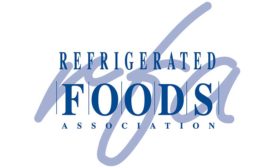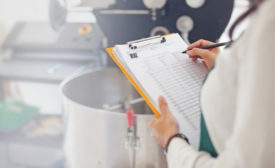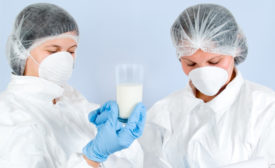Home » Keywords: » food safety training
Items Tagged with 'food safety training'
ARTICLES
Risk Communication, Promoting Public Health at AFFI’s Food Safety Forum
September 18, 2023
Food Safety Regulations Affecting Refrigerated Processors in 2021
Stricter traceability in RTE deli salads are one example of new rules coming to the industry.
December 15, 2020
USDA, EPA, FDA announce partnership with Food Waste Reduction Alliance to formalize industry education, outreach efforts
The FWRA represents three major sectors of the supply chain—food manufacturing, retail and restaurant and foodservice.
October 31, 2019
Study finds wearable technology most effective training method for foodservice workers
The study tested the educational properties of glass with EyeSucceed against traditional, video-based training.
October 10, 2019
STAR-K Kosher Certification announces partnership with Registrar Corp.
A recent Registrar survey revealed Kosher certification, along with non-GMO and organic certification, is top of its clients’ list of desired additional services for 2020.
October 10, 2019
Purdue University receives $10M to fund food safety lab, address global food safety
This program will develop initiatives to improve food safety in Bangladesh, Kenya, Ethiopia, Senegal, and Cambodia.
August 20, 2019
Study: Temperature distribution of cold, hot meals in foodservice predict growth of Salmonella, Listeria
According to the predictive model, Salmonella spp. and L. monocytogenes were not able to grow on cold foods stored for 6 hours at temperatures below 10°C.
August 14, 2019
Elevate your expertise in refrigerated and frozen foods with unparalleled insights and connections.
Get the latest industry updates tailored your way.
JOIN TODAY!Copyright ©2025. All Rights Reserved BNP Media.
Design, CMS, Hosting & Web Development :: ePublishing












